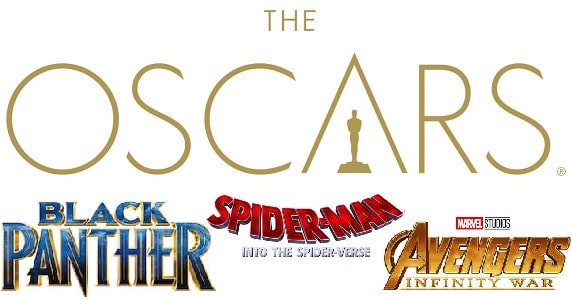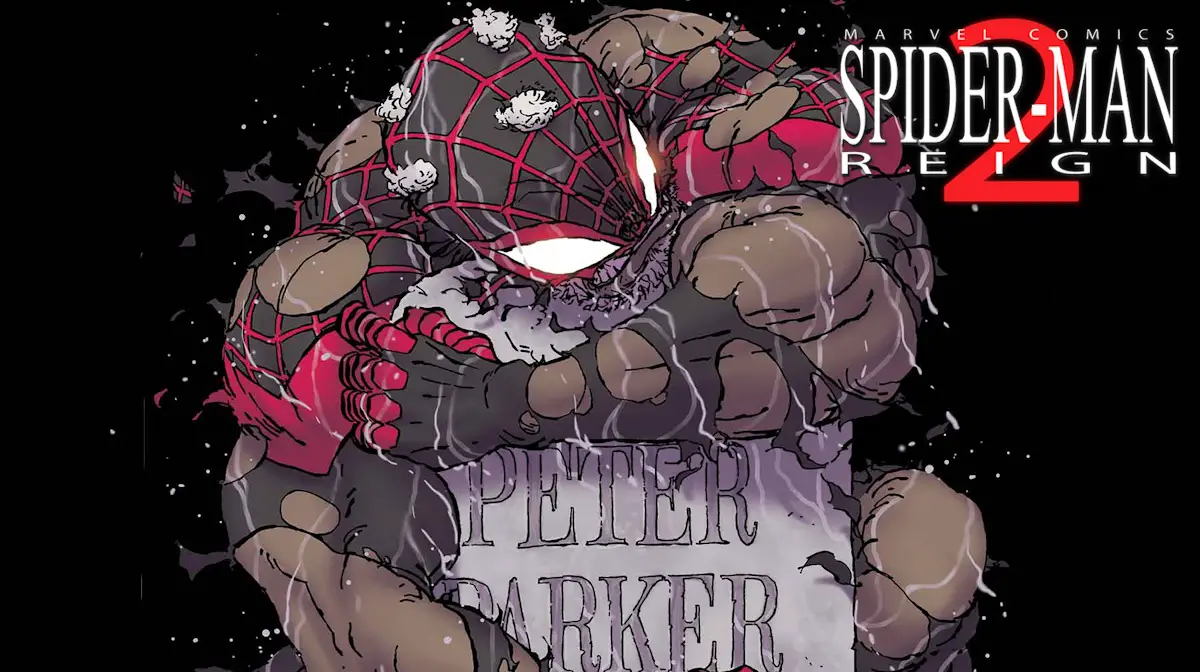Written by Adrian Care
Last week, the 2019 Academy Award nominations were released.
Like every year, there were some eyebrow raising ‘ins’ and some even more questionable ‘outs.’
Over the last several years, comic book properties have increasingly dominated the box office. 2018 saw five out of the top ten highest earners worldwide being comic book films. Six if, like me, you count The Incredibles 2 as a comic book film.
At the time of writing, Avengers: Infinity War had grossed over 2 billion dollars. Black Panther was in the number two spot with more than 1.3 billion. Aquaman is on its way to surpassing The Dark Knight as DC’s highest ever earner with over 1 billion dollars in grosses. That’s three (four, if we’re counting the Incredibles 2) of the top five. Outside of the top five, Venom surprised everyone by taking in 855 million dollars and Deadpool 2 held strong all year to remain in the top 10 with over 737 million.
But is the financial success and irrefutable popularity of comic book movies reflected critically and when awards season rolls around?
Does it still feel like there is an undercurrent of elitism or exclusion when it comes to “Oscar worthy” films?
Or is it just a trend to cry out “Hey! What about us?” when the movies that people clearly want to see aren’t given prestige and recognition on awards night? Are we as fans trying to get comic book films recognised?
Or are we trying to overwrite the Matrix?
This year’s Academy Awards have Black Panther nominated for Best Picture, Best Original Music Score, Best Original Song, Best Costume Design, Best Sound Mixing, Production Design, and Sound Editing accolades.
Spider-Man: Into the Spider-Verse and Incredibles 2 are each nominated for Best Animated Feature.
Avengers: Infinity War is nominated in the Visual Effects Category.
That’s not exactly unfair representation, at least in terms of diversity across categories. Let’s be honest here. We’re passionate, possessive fans, and we have a loud voice. But aside from maybe Michael B. Jordan and Ryan Coogler, there aren’t any glaring omissions that stack up to most of the other nominees. No more than usual, anyway.
We want the awards to stay legitimate and not become “Disney’s The Academy Awards: MCU edition”.
Sure, fandom will make a case for Tom Holland or Josh Brolin. Some of us might even petition for Ryan Reynolds just out of cheek.
But it’s not as if the people within the industry seriously look down their noses on comic book films as, some would claim, was often the case.
Actors, by the way, also vote for these awards. Much of the Academy is comprised of former winners and nominees. Actors and creators are fans as well. They want to be in these movies as much as they want to watch them.
Mahershala Ali was on our screens as Cotton Mouth in Netflix’s Luke Cage around the same time he was picking up the Best Performance by an Actor in a Supporting Role award for Moonlight two years ago. Five-time nominee and three-time Oscar winner Tom Hanks starred in Road to Perdition while comic book properties were still clawing towards legitimacy.
Morgan Freeman’s career is littered with 5 Oscar nominations, and one win for Million Dollar Baby. Yet before AND after this success, he has lent his weight to Chris Nolan’s Dark Knight Trilogy and Wanted. Ditto for Michael Caine, a two-time Oscar winner. Christian Bale brought a supporting actor Oscar win for The Fighter with him to his third go around as Bruce Wayne. The bat-franchises throughout time include a litany of Oscar-nominated actors.
Being known for Wolverine didn’t sully Hugh Jackman’s chances of winning when he was nominated for Les Misérables. The same year RDJ was nominated for Best Supporting Actor for Tropic Thunder, he had just helped kickstart the Marvel Cinematic Universe proper in Iron Man.
Look deeper and you’ll see a list of familiar names that make up an imposing who’s who of stars who have touched the helm of Oscar glory on multiple occasions and still seen fit to bring our favourite four-colored myths to life on the silver screen.
Yes, the top-line awards aren’t swimming with Oscar nominations and wins for comic book properties. But give it time. On the grand scale of things, comic book movies are still in their early childhood.
The Best Picture nomination is a history-making moment for Black Panther. There is nothing facetious or cliché, should it fail to win, in graciously claiming “it’s an honour even to be nominated.”
Heath Ledger’s iconic performance as The Joker in The Dark Knight Returns was the first time a comic book property had broken through for a win in the “major categories” (let’s dispense with that way of thinking from here on out though. An Oscar is an Oscar no matter the category and this stigmatism only diminishes the hard work that everybody pours into their crafts to bring us entertainment). Ledger’s posthumous victory wasn’t the first time a nomination was given in this category for a comic book portrayal.
Al Pacino had previously been nominated for Dick Tracy in 1990, but that award was won by Joe Pesci for Goodfellas. Paul Neuman was Oscar nominated in the same category for Road to Perdition, which went to Chris Cooper in Adaptation. A History of Violence’s William Hurt was nominated the year that former Batman, George Clooney, won for Syriana.
The visual effect category has been more than generous to the comic book genre on film. Let’s face it, comics and movies are primarily a visual medium. A medium renowned for spectacle. It’s not a blight or a consolation prize to consistently win or place in this area, but a testament to the material being done its justice.
The 1978 Superman really did make people believe a man could fly. It wasn’t nominated in the visual effects category but was awarded a special achievement Oscar all the same. Further down the franchise when a Superman movie WAS nominated with Superman Returns, it would lose to Pirates of the Caribbean: Dead Man’s Chest.
Batman Returns was nominated for best visual effects, which was awarded to Death Becomes Her that year. It wouldn’t be the last time something along those lines would happen. The special effects in The Mask, which still hold up today, watched as Forrest Gump collected a gold statue in visual effects instead. Sam Raimi’s Spiderman was beaten by Lord of the Rings: The Two Towers in the visual effect category. But it’s superior sequel would collect the award in 2005.
Iron Man lost its VFX award to David Fincher’s The Curious Case of Benjamin Button’s ground-breaking de-aging wizardry and effects. This began a quiet losing streak for the MCU that would see Life of Pi beat out Avengers (really though?), Inception beat Iron Man 2, Gravity beat Iron Man 3, Interstellar beat Captain America: The Winter Soldier, X-Men: Days of Future Past, AND Guardians of the Galaxy in the same year. Dr. Strange lost to Iron Man director Jon Favreau’s The Jungle Book, and Guardians of the Galaxy Vol. 2 lose to Blade Runner 2049. (So, fingers crossed for Avengers: Infinity War to buck that trend…right guys?)
Don’t be disheartened if this all seems too gloom and Dr. Doom for you. Spider-Man: Into the Spider-Verse has enjoyed resounding critical acclaim this year and comic book films have fared well in the animation category. Big Hero Six took home the Best Animated Feature statue in 2015. The Incredibles (just Shhhh… it counts) won the category in 2005, and in 2008 Persepolis was nominated in a category where Ratatouille won and Surf’s Up was the only other nom. (So, it’s safe to call it a strong second place finish.)
It’s not that comic book films never get nominated at all. It isn’t even that they just lose because they’re comic book films either. Consider the trends of each year, or even the competition to which some of our favourites have graciously bowed to.
Richard Donner’s Superman lost its Best Sound, Film Editing, and Original Score Oscars to The Deer Hunter and Midnight Express. Of those awards, you could only really argue for John Williams iconic Superman theme. The rest seem fair play.
Batman Returns lost in the Best Makeup category to that year’s Bram Stoker’s Dracula. While the Danny DeVito, Tim Burton-ised Oswald Cobblepot was horrifically glorious, Gary Oldman’s Transylvanian iconic vampire was even more so.
Batman Forever was beaten in cinematography, and both sound categories, by Braveheart (that year’s all conquering epic) and Apollo 13. If I showed you those three Blu-Ray covers and asked what we’re watching tonight, I dare say Batman Forever won’t be anybody’s first or second pick.
It’s not rare to see one comic book film beat another comic book film for an award either. Iron Man was nominated in the sound editing category the year The Dark Knight picked up the award.
Because these works that we cherish so much are literally adapted from written material, we’ve witnessed our fair share of nods in the best adapted screenplay category too. Logan, Ghost World, American Splendour, and A History of Violence have all been recognised. Receiving nominations and ensuring people know the works of Mark Millar, Daniel Clowes, Harvey Pekar, and John Wagner, respectively.
Think there’s still not enough Oscar love showered on the medium?
Dick Tracy has three Oscars to its name. Best Art Direction-Set Decoration (deservedly so), Best Make-up (hell yes), and best Music, Original Song. That’s to go with the previously mentioned Al Pacino nomination, as well as nods for Cinematography, Costume Design, and Sound.
People forget that Men in Black originated as an indie comic put out by Aircel, later bought by Malibu, even later bought by Marvel. MIB creators Lowell Cunningham and Sandy Carruthers are therefore responsible for, technically, Marvel’s first Oscar win with a golden statue for Best Makeup.
The Joker is a two-time Oscar winner, again… technically. After Heath Ledger’s win, 2016’s Suicide Squad saw Belle Reve’s newest resident become a little golden man with the words “Best Achievement in Makeup and Hairstyling” inscribed on it. Makeup is another category were comic book properties are frequently nominated in, with other previous nominees including Guardians of the Galaxy and Hellboy 2: The Golden Army.
In 2003, Sam Mendes’ Road to Perdition adaptation won for Best cinematography while being nominated in five other categories. Batman Begins was quietly nominated in this category in 2006, as was The Dark Knight in 2009’s ceremony.
The Dark Knight is often referred to as the standard bearer for comic book films. With its two wins in Supporting Actor and Sound Editing categories, had it won all its awards, it would boast 8 Oscars to its name.
Matt Reeves’ distant Batman film has a long Oscars lineage to live up to. The Batman character scored its first Oscar for 1989’s Batman. It was for Best Art Direction.
If you look back on it now, it was comic books first taste of victory at the Oscars.
An often-overlooked watershed moment for our fandom that began a slow crawl towards the advancements we’ve made.
A marker for how far we’ve come. An indication of the potential of comic book films still to come. A telling sign that maybe there is no snub after all.





